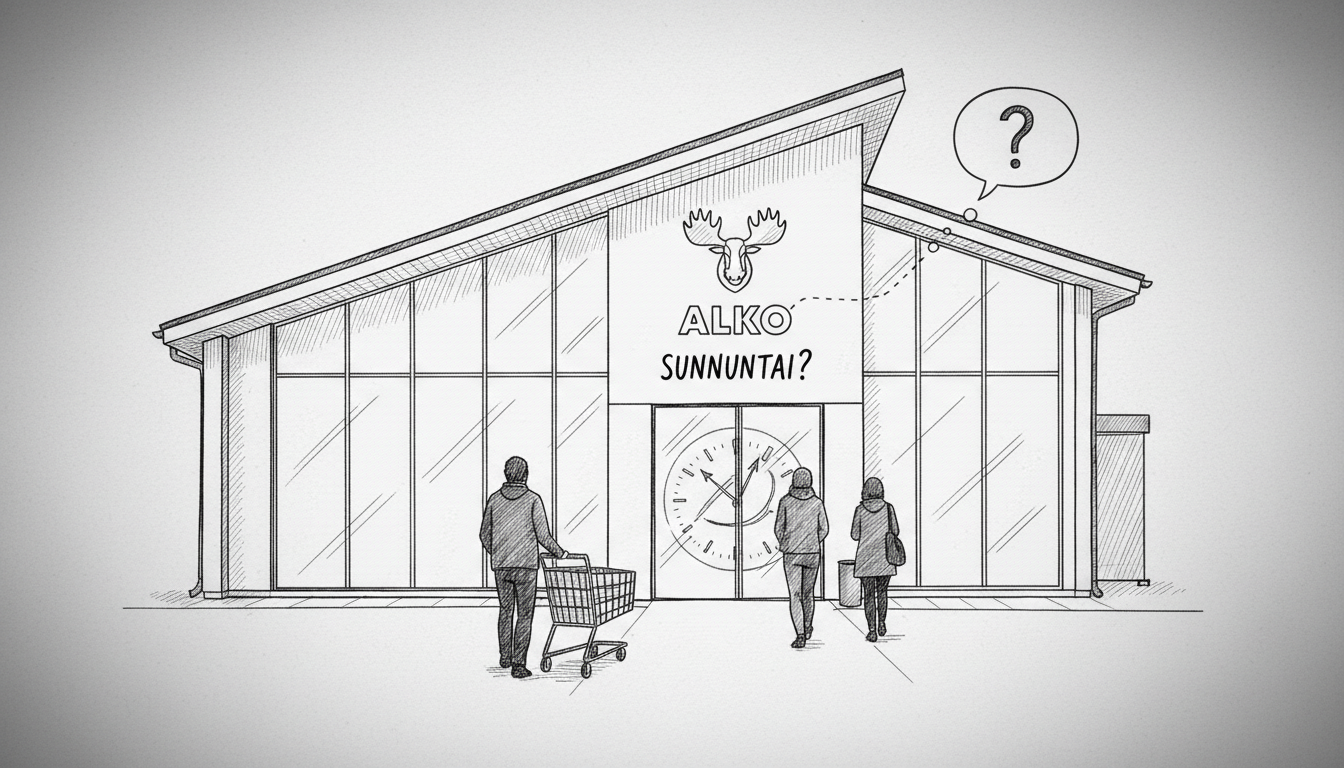Finland's state alcohol monopoly Alko may not open all stores on Sundays and public holidays even if new legislation permits extended hours. The company's business director Kari Pennanen explained that opening times vary significantly between locations based on customer demand. Currently, stores operate under different schedules depending on local needs.
A parliamentary committee recently proposed allowing Alko stores to open on Sundays and public holidays. The suggestion surprised many but appears likely to gain support from most government parties except the Christian Democrats. This represents a potential shift in Finland's traditionally strict alcohol retail regulations.
Pennanen described Alko's position as watchful and interested. He emphasized that legislative preparations remain ongoing, and the company awaits parliamentary decisions before making concrete plans. The current law permits Alko stores to open weekdays from 9 AM to 9 PM and Saturdays from 9 AM to 6 PM.
When asked about specific public holidays where stores might open, Pennanen declined to speculate but noted that some religious holidays like Ascension Day, Epiphany, and All Saints' Day have effectively become normal shopping days for customers. He specifically mentioned All Saints' Saturday as worth examining for potential opening.
Alko stores currently operate limited hours on Christmas Eve and Midsummer Eve from 9 AM to noon. Pennanen revealed that Christmas Eve shopping popularity at Alko stores typically matches average daily traffic rather than showing exceptional demand.
Only slightly over half of Alko locations currently operate with maximum permitted hours. Stores in larger municipalities and major shopping centers tend to stay open longer, while some regional locations adjust hours seasonally. Pennanen stressed that local needs determine each store's operating schedule.
The business director also highlighted Alko's responsibility perspective, noting the company's dual mission involves selling alcoholic beverages while minimizing societal harm. He suggested any changes to opening hours would likely begin with pilot programs involving staff and customer feedback.
This testing approach aligns with Alko's standard practice of experimenting, learning, gathering customer opinions, making adjustments, and only then implementing broader changes. The parliamentary committee's proposal connects to government efforts to reform regulations concerning remote alcohol sales and home delivery.
Committee members argued that broader opening hours would strengthen Alko's operational prerequisites and mission. They expressed concern that proposed changes to alcohol delivery rules might otherwise weaken the monopoly's position. Currently, strong alcoholic beverages ordered from abroad can be delivered on Sundays, while Alko-purchased drinks cannot.
Pennanen suggested unified rules for all alcohol retailers would create clearer guidelines for consumers. He noted that many online purchases get collected from Alko stores, making the stores function as pickup points regardless of delivery restrictions.
Alko previously proposed testing extended Saturday hours and Sunday openings instead of expanding wine sales to grocery stores. The company's CEO Leena Laitinen previously stated that consumer shopping behavior has changed, with weekend shopping becoming more common across all retail sectors.
International comparisons show varied approaches among alcohol monopolies. Quebec's Canadian monopoly operates Sunday hours, while Norwegian and Swedish monopoly stores remain closed Sundays. Finland's potential policy shift reflects evolving consumer habits while maintaining the Nordic model of controlled alcohol sales.
The debate highlights Finland's balancing act between consumer convenience and alcohol policy objectives. Any changes would need careful monitoring to assess impacts on consumption patterns and public health outcomes while meeting modern shopping expectations.

